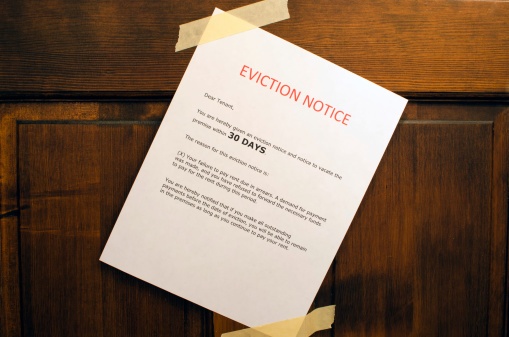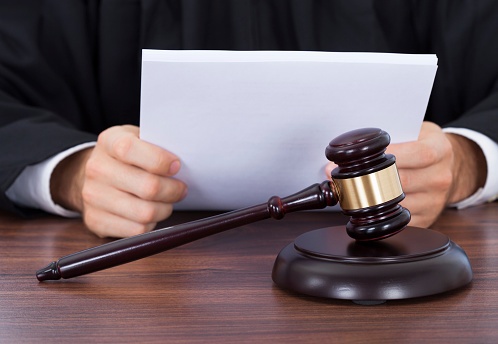Scura, Wigfield, Heyer, Stevens & Cammarota Blog
- Blog
How Do You Stop an Eviction in New Jersey?
Update as of 6/14/21
Jamal Romero, Esq: Has the pandemic left you without a job and you can’t afford to move. Have you ever wondered if you can stop an eviction proceeding? The following information can assist you if you received an eviction notice.
The price of living can sometimes be high, and often we will be faced with eviction, something that everyone in New Jersey wants to stop. How does one stop an eviction when it starts? This is the question every single renter has asked, especially under times of financial distress. Maybe you were laid off. Maybe your rent is increasing. Either way, your landlord has sent you an eviction notice, one that demands your immediate attention.
It is highly possible that you are in the middle of an eviction right now, facing off against odds that might leave you stranded and without a home. In this event, what are some measures you can take to avoid eviction? And is bankruptcy a solution that might help you?
Why Would You Want to Stop an Eviction?

There are many reasons why you’d want to stop an eviction, especially in New Jersey. Housing is already an expensive matter. Being evicted means you are left without a home, without a place to rest, forced to couch surf from friend’s house to friend’s house. However, there are other consequences that last longer than the immediate, obvious issues.
Eviction can bring down your credit score, which can make it harder to find a new place to life. Some landlords outright refuse to open their doors to clients who have previously been evicted. Much like foreclosure, eviction is an event that will travel with you over the next several years.
However, you need not fear. There are multiple ways you can freeze an eviction midway through. This expensive process can be stayed before it can culminate in your removal. Let us analyze how.
What is the Type of Eviction Notice You Received?
One factor in determining if you can stop your eviction in an effective manner is understanding the variety of eviction you are receiving. Eviction actions are filed with the court but can be based on different reasons. The most common reason for an eviction is failure to pay rent. Other types of evictions could be because you have breached the lease in another way such as too many persons on the premises, illegal drug use, you have held over past the lease term, disorderly conduct or some other reason under the Anti Eviction Act in New Jersey. If it is not a listed reason under the Anti Eviction Act than you cannot be evicted.
If you are being kicked out due to bad behavior, it might be harder to fight against the eviction notice. If you believe the reasons you are being evicted are either fabricated or unfair, you can make an argument against the eviction in court. Evictions are legal proceedings. If you do not vacate your premises by the time the notice reaches its due date, the landlord can bring the notice to the courts to get a sheriff to remove you.
However, if the eviction is purely driven by financial restrictions and issues, you can take measures to avoid being evicted.
Can You Negotiate Your Way Out of an Eviction?

Eviction is a costly expenditure. Landlords know that it can cost them a great deal of money to evict a tenant, while tenants do not want to be evicted because doing so will result in them losing their home. Therefore, there are several ways tenants facing eviction can negotiate verbally around being evicted.
The important question is this: why is your landlord trying to evict you? Is it because you play your music too loud, disturbing other tenants? Is it because you have failed to pay your rent on time? You can attempt to negotiate with your landlord, trying to come to an understanding or come to an agreement that can allow you both to satisfy both parties.
You can try to arrange a payment plan to make-up for missed payments. This might require some new contracts being written up or temporary deals arranged. However, when talk falls apart, there are still means through which you can take a stand atop your eviction situation.
How Can You Use an Eviction Hearing to Escape an Eviction?
Evictions are a legal process, which means that there are Eviction Hearings that you can attend, during which you can legally fight your eviction. When your landlord files for an eviction hearing, you will receive all the paperwork and documentation pertaining to the case.
If you feel you are the target of discrimination, it is illegal for tenants to be evicted based on their race, gender, sexual identity, religious beliefs, etc. You can argue that you are a target of discrimination in court. This is a straight-forward means to avoid being evicted. In New Jersey, the courts first send the parties to the eviction to mediation to try to work out the issues. If the issues cannot be resolved than a judge will hear the case. Whatever you do you must appear in court that day so that the landlord does not receive a judgment of possession.
When you are summoned to attend an eviction hearing, however, you will need to go to court. It is required that you attend. Even if you do not have a solid defense, you can attend the hearing to at least delay the arrival of the sheriff, which will give you an opportunity to avoid or re-negotiate the eviction with your landlord.
Can Bankruptcy Stop an Eviction?

Bankruptcy is a process that reorganizes all debt. If you are facing eviction, it might feel as though you might be able to use bankruptcy as a potential means to stave off eviction, since it is often used to stave off foreclosure and sheriff sales. But does this apply also to bankruptcy?
When you file for Chapter 13 bankruptcy, you are protected from all creditors pursuing you for payments. You can also use a Chapter 7 bankruptcy to stay an eviction and work something out with a landlord. Typically, in a Chapter 13 you can arrange a three to five year payment plan to pay off your debts, without interest. So, with regard to an eviction a Chapter 13 is usually the better option. Creditors are not allowed to pursue or maintain any collection activities or lawsuits during the case. If successful, these creditors will be wiped out or discharged. A Chapter 13 bankruptcy is very powerful because it provides a mechanism for debtors to prevent foreclosures and sheriff sales and stop repossessions and utility shutoffs while catching up on their secured debt.
However, does rent count as an outstanding debt? By reorganizing your debts with your creditors, including your landlord, you could renegotiate a means to pay off overdue rent, putting a temporary freeze in order for you to catch up. This would be to your landlord’s benefit as well as your own. However, if you are being evicted due to bad behavior or improper conduct, this is not explicitly protected by bankruptcy.
With an eviction, you must file the bankruptcy before the judgment of possession is entered as it makes it much easier to restructure the arrears on the lease and your lease will still be intact. Once a judgment of possession is entered you may lose any rights to the lease and there are extra obstacles you must overcome to be able to salvage your lease rights to the property.
Regardless, whether you’re facing bankruptcy or eviction, you need a lawyer on your side who can help you solve your problem. That is where we come in. The attorneys at Scura, Wigfield, Heyer, Stevens & Cammarota LLP can help. Please call our offices to schedule a free consultation and hear your options.

John J. Scura III
John fights hard for his clients and tries to educate them so they understand what is going on with their particular legal problem. John has been Certified by The Supreme Court of New Jersey as a Civil Trial Attorney. Whether it is a personal injury case, bankruptcy case, litigation case or other type of matter, John wants his clients to participate in the decision making process toward solving their problem in the best way possible.
Share Article
Need Help? Contact Us Today!





Lists by Topic
- Bankruptcy (323)
- Personal Injury (95)
- Chapter 13 (52)
- Chapter 7 (51)
- Debt Management (50)
- Foreclosure (47)
- Accident (32)
- Car Accident (27)
- Chapter 11 (25)
- Business Bankruptcy (20)
- Insurance Claims (19)
- Credit (18)
- Business Law (13)
- Employment Law (12)
- Litigation (12)
- Probate and Estate Law (11)
- Damages (10)
- Medical (10)
- Product Liability (10)
- Workers Compensation (10)
- Attorney (9)
- Consumer Bankruptcy (9)
- Commercial & Residential Real Estate (6)
- Slip and Fall (6)
- Contracts (5)
- Premises Liability (5)
- Repossession (5)
- wrongful death (5)
- Video | Bankruptcy (4)
- Bankruptcy Cost (3)
- Corporate Litigation (3)
- Trial Law (2)
- student loans (2)
- tax (2)
- Attorney Fees (1)
- COVID-19 (1)
- Certified Civil Trial (1)
- Dog Bites (1)
- News (1)
- Relocation Assistance (1)
